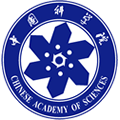Study in University of Chinese Academy of Sciences About University of Chinese Academy of Sciences & Study in ucas
About University of Chinese Academy of Sciences
UCAS is a higher education institution established with the approval of the Ministry of Education, focusing on graduate education. The predecessor of UCAS was the Graduate School of Chinese Academy of Sciences (GSCAS), which was founded in 1978 as the first graduate school in China by approval of the State Council. UCAS graduated the first doctoral student in science, first doctoral student in engineering, first female doctoral student and first student with double doctoral degrees in China. In 2014, UCAS will begin to recruit undergraduates.
Based on the high-level research advantages and high-level human resources of CAS, UCAS has four campuses in Beijing and five education centers outside Beijing. Backed by 117 CAS institutes throughout China, it implements the guiding principle of “unified enrollment, education management and degree conferment; faculty-institute’s fusion on leadership, faculty, management and cultivating system”. It has expanded and improved the “two-phase” cultivation mode in which core course teaching is centralized in Beijing campuses, and scientific research were primarily done at the various institutes. This sound education system has enabled UCAS to be the platform as training students and the CAS institutes as the bases of students practicing. At present, there are 41216 graduate students studying at UCAS, among whom 50% are doctoral students. UCAS has conferred master’s and doctoral degrees on 109882 graduate students to date.
UCAS has a highly qualified faculty team consisting of teachers and supervisors from UCAS faculties and CAS institutes and a first-class scientific research environment for students to fulfill scientific research. At present, UCAS has 12658 academic supervisors, including 330 CAS and/or CAE members and 6 185 doctoral supervisors. At various CAS institutes, there are three National Laboratories, 84 State Key Laboratories, 163 CAS Key Laboratories, 41 National Engineering Research Centers (Laboratories) and numerous national frontier scientific research projects, providing a solid and formidable scientific practice platform for student’s education.
UCAS has a complete set of disciplinary system with unique advantages that covers a wide range of disciplines. It has a prominent teaching and research environment in mathematics, physics, chemistry, astronomy, earth science and biology in natural science as well as mechanics, materials, energy, electron and communication, automatic control and computers in engineering. UCAS has strengthened its efforts in the development of applied disciplines, new inter-disciplines, humanities and social sciences while maintaining its unique academic advantages.
UCAS has a sound academic system. It has a total of 146 programs offering doctoral degrees in education, nature science, engineering, agriculture, medicine and management science. It also has 170 programs offering master’s degrees in philosophy, economics, law, education, literature, natural science, engineering, agriculture, medicine and management science. In addition, UCAS also offers one professional doctoral degree program in engineering and master’s degree programs in engineering, business administration, applied statistics, applied psychology, translation and interpretation, agricultural extension, pharmacy and engineering management. There are 169 post-doctoral research stations in CAS as well.
UCAS offers numerous books and materials and modern teaching and scientific research environment. UCAS has and shares the National Scientific Library, CAS (NSL), which has an extensive collection of resources and electronic documents. Students freely borrow, read and query these books and documents as well as professional books and documents in CAS branches or libraries of various institutes. UCAS has excellent teaching facilities, utilizing various modern teaching methods such as multimedia and network video education. UCAS emphasizes instructional quality, implements strict teaching management, publishes high-level professional teaching materials, and encourages the use of academically recognized English textbooks and invited supervisors and faculty routinely give lectures in English.
Based on the extensive international cooperative relationships of CAS, UCAS has built up close ties and partnerships with the Max Planck Society in Germany, the National Center for Scientific Research in France, the Russian Academy of Sciences, the National Academy of Sciences of the United States and many other world-renowned universities. It has jointly established the Sino-Danish College in China under the guidance of the Danish Ministry of Science and Education and eight Danish public universities.
UCAS has a strong educational and cultural atmosphere. Adhering to the CAS tradition of “science, democracy, patriotism and dedication” and the CAS style of “realism, truth-seeking, cooperation and innovation”, UCAS not only emphasizes the cultivation of solid foundation of knowledge and research ability for students, but also cultivates the scientific spirit of being brave and determined in innovation and having a scientific research characteristic of being both realistic and pragmatic, thereby developing a strong sense of firm responsibility. UCAS promotes all-round development of students through course teaching, research reports, research training (practice), social practice, campus activities and other means. In addition, the university has also organized a variety of cultural and sports activities to create a lively campus atmosphere.
UCAS will continue to uphold its principle of “fusion of science and education, cultivating talents foremost, collaborative innovation while serving the country” and to maintain the cultural tradition of “learned and persevering, investigative and virtuous”, and make unremitting efforts to build an innovative country and the honing of top-quality innovative research talents.

